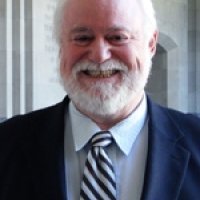Somalia: Assessing the First Year of the Federal Government
Panel 2: Governance and Security in Somalia
“Somalia has seen too much conflict. It is now demanding new solutions.”- Ambassador Donald Teitelbaum
The Initial Indicators of Success
This first year of the Federal Government’s tenure has shown more progress than in the two previous decades. It has begun what will hopefully be the country’s regaining of its footing in the Horn of Africa and the continent writ large. The gains made are evident in terms of governance, peacekeeping, and security.
At present, the government is developing a program regarding political decision-making processes instead of following the international community’s prescriptions, as had previously been the case. As regards the security environment, progress is almost palpable. Al-Shabaab has been pushed out of Mogadishu and the city is more secure. Even though there is an ongoing humanitarian crisis, Ambassador Donald Teitelbaum stated that it is “not the same Somalia.” Among warlords competition for economic power and political influencae is on the decline, and “the dynamic business community has shown a strong capacity to develop, invest and influence Somalia’s direction.”
Evaluating the New Government
Omar Daair, first secretary, Embassy of the United Kingdom posed an important question necessary to evaluate any government, “Have they done what they said they would?” Daair considers that, “they are doing pretty well so far.” The focus has now shifted from what the international community should be doing for Somalia to what the Somalis are doing for themselves. With the transition to a federal government, Somalia has seized the occasion and the international community has been quick to offer support.
Remnants of the Past
Somalia’s recent accomplishments are undeniable but they are tainted by some enormous challenges, including corruption, reconciliation, the ratification of the constitution, and defeating the insurgent elements. Paul Williams, associate professor at George Washington University explained the challenges faced by the African Union Mission in Somalia (AMISOM). AMISOM has a difficult and turbulent relationship with the new government because it is caught in a conflict between different regional authorities in Somalia. Also, AMISOM is trying to build up the defense capabilities of the Somali security sector (the national army, the police, and intelligence services). “The Somali security forces remain limited because of technical and political reasons such as loyalty to clans or personal militias, versus loyalty to government.” One crucial challenge faced by Somalia is the situation with Al-Shabaab. AMISOM is attempting, for instance, to erode Al-Shabaab’s capability to conduct large-scale operations in the country. But in response, the terrorist organization has resorted to guerilla tactics and concentrated its forces in the country’s North. Williams said that, “the military forces of Al-Shabaab remain intact; it has preserved the core of its forces.” It is unquestionable that Al-Shabaab must be defeated or at the very least substantially weakened for Somalia to move forward.
Looking Forward
In order to consolidate the gains over the long term, the panel identified clear rules of engagement to help Somalia in its quest to stabilize and realize its full potential. Keith Jennings, senior associate and regional director for Southern and East Africa, National Democratic Institute highlighted 7 important issues for the Somali people and those who want to provide support. These issues include: national reconciliation; addressing the marginalization of young people and women; finalizing the new constitution; fostering a peaceful and safe country; engaging in inclusive economic development strategies; unifying the Somali nation; and finally the government must gain legitimacy by being responsive to the needs of its citizens, building its capacity, and setting the national agenda.It is important to consider the broader context of security in Somalia. The president has been working on eliminating the threat of piracy and ameliorating the humanitarian situation. However, the president will have to continue to improve the country’s governance and the provision of basic services. Furthermore, Somalia cannot rest on its laurels. It must bolster citizen security. Jennings declared that “without reconciliation, there can be no competitive politics.”
Change from Within
A final point that was emphasized by the panel is that the change has to come from the Somalis themselves. Ambassador Donald Teitlebaum is confident that the Somali population has the ability to make the necessary changes. He stated that, “Somalis have a remarkable ability to be practical. They [can] reach their own methods of reconciliation.” In Jennings’s opinion, the best way to secure Somalia’s future is, “to stand ready to support the priorities identified by the Somali people.
A Long Journey Ahead
The central point of this conference was that the journey that lies ahead will be long, but the progress made already is substantial. The battle has to be led on all fronts in order to reach stability. Ambassador Teitlebaum concluded that, “It will be a long and difficult journey, but its Somalia’s best hope for success.”
Speakers


Professor of International Affairs and, Associate Director, M.A. Security Policy Studies Program, The George Washington University
Hosted By

Africa Program
The Africa Program works to address the most critical issues facing Africa and US-Africa relations, build mutually beneficial US-Africa relations, and enhance knowledge and understanding about Africa in the United States. The Program achieves its mission through in-depth research and analyses, public discussion, working groups, and briefings that bring together policymakers, practitioners, and subject matter experts to analyze and offer practical options for tackling key challenges in Africa and in US-Africa relations. Read more
